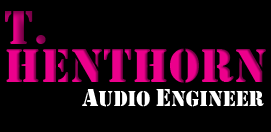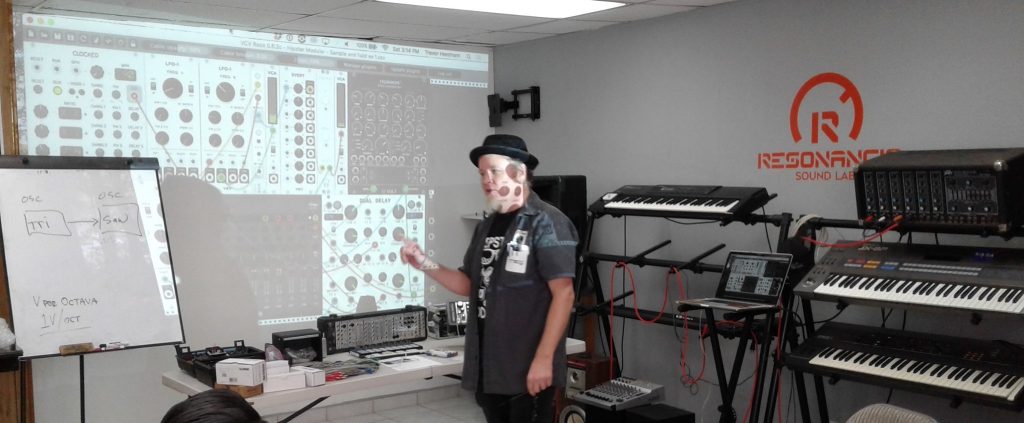Courses
Current offerings
In the ever-changing world of electronic music and art, what it means to be a learner is also changing. Currently, I prefer “sensible bites”. Short courses and workshops with “hands-on” opportunity seem to be the most inspiring. Watch the schedule for Resonancia in Tijuana (Hector is gracious enough to include me in his activities) and our bi-monthly Rig Rant event at the Pyramid. Here are some of my offerings:
- Introduction to Modular (1 day – approx. 4 hours) – A team-taught workshop starting with an overview of synthesis (additive, subtractive, FM, etc.), an introduction to Eurorack modular and an introduction to VCV Rack virtual modular.
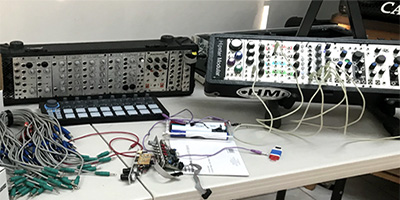
- Modern Machines (1 day – approx. 2 hours) – This shorter workshop focuses on use of current (hardware) drum machines and synthesizers, including the Roland Boutique series and Elektron Music Machines. I cover issues of sync, audio-over-USB, mixing and control.
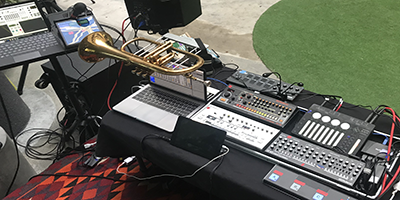
- Ableton Live Tricks (1 day – approx. 2 hours) – This workshop takes over where “introduction to Ableton” leaves off. The idea here is to cover features of Ableton Live that are not otherwise covered in the widely available tutorials – this includes Max for Live, live performance techniques and technology beyond just audio (e.g. lighting, video and visualizations).
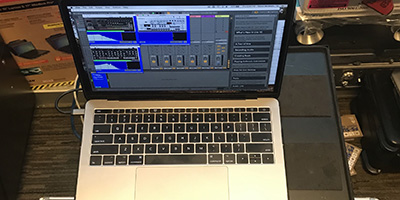
- Software Machines (1 day – approx. 3 hours) – This workshop covers interesting machines and plugins that go beyond Ableton and other DAWs. This includes emulation machines such as the D16 Nepheton and Phoscyon as well as synthesis and sampling environments such as Reaktor, Massive X and Kontakt. Here I cover issues of sync and automation.
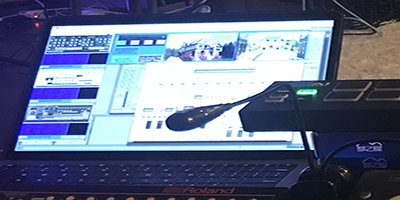
- Sound Installations (1 day – approx. 3 hours) – This hands-on workshop looks at the sound installation as an art form. We cover both technological, interactions aesthetic issues.
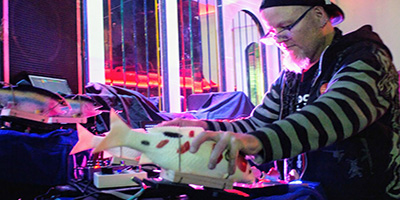
- Sound and Science (1 day – approx. 3 hours) – This workshop joins two disciplines. We look at topics such as psychoacoustics and perception. I cover techniques ranging from stimuli creation to illusions to use of psychology in live performance.
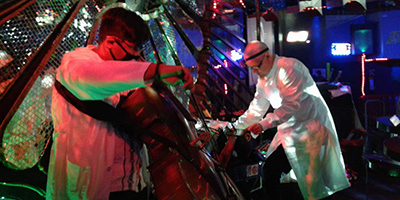
- Improvised Electronics (1 day – approx. 3 hours) – This workshop covers improvisation techniques as they relate to electronic music and art. I cover specific examples, provide opportunity for collaboration and address issues such as the integration of traditional techniques and/or instruments with electronics. We cover use of the TC Voicelive and other effects and loopers.
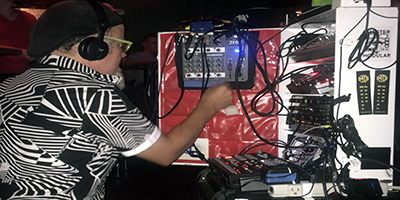
- Pedals (1 day – approx. 3 hours) – This hands-on workshop covers use of pedal effects in live performance and recording. Of course, we start with the guitar, but effects pedals aren’t just for guitars. We look at routing audio from the computer through effects and use of “loops” (groups of effects that are turned on/off together). We explore standard pedals (e.g. Boss), boutique pedals (e.g. Earthquaker) and multi-effects pedals (e.g. Line 6 HD500X).
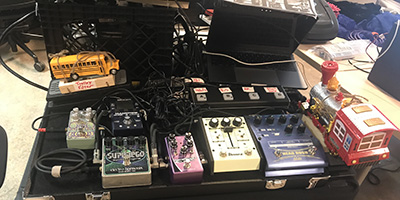
- Field Recording 101 (1 day – approx. 4 hours) – This hands-on workshop covers the basics of professional-quality field recording. We prep gear, go over microphone and capture techniques then take a trip to record. After a break, we cover editing, de-noising (using Audition and iZotope RX) and other preparation techniques such as clip sampling.
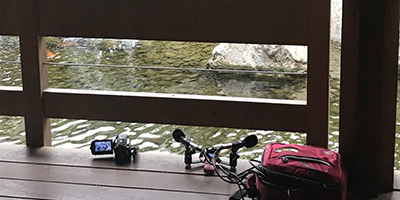
- Live Sound (1 day – approx. 4 hours) – This hands-on workshop explores the reinforcement of sound for live performance – electronic music, bands and the circus! We cover use of wireless vocal systems, instrument directs, drums, guitar, bass and ambiance amplification (such as tap dancers).
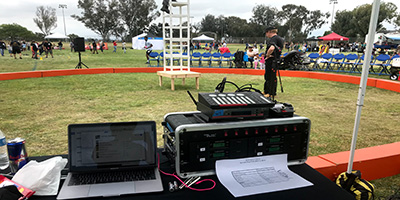
Past Course and Experiences
For 8 years, I thought at the Art Institute of California. I was responsible for instruction, curriculum development and course design for a variety of courses within the WASC accredited AS and BS programs in Audio Production at the San Diego campus. Courses included Advanced Recording Techniques, Sound for Interactive Media, Audio for Emerging Media, Digital Audio IV (including mastering and surround sound), Synthesis & Sound Design, Acoustics, Electronics II, Audio Recording II (introduction to the professional recording studio), Sound for New Media, Senior Projects and Mastering.
Topics covered in these courses included CD Mastering, production and distribution, studio techniques, microphone techniques, advanced digital audio systems, surround sound recording, monitoring, production on the SSL Duality and post production on Pro Tools and Logic, developing sound for new forms through sound installation, interactive media, digitalization, improvisation, and acoustic experimentation, advanced digital audio theory, interact with analog consoles, digital recorders, external DSP, software signal routing, interfacing equipment, and synchronizing digital audio streams, analog-to-digital/digital-to-analog conversion, dithering, error correction and concealment, digital storage media, encoding methods involving data compression, digital audio interface standards, DAW interchange standards and synchronization methods. This position accumulated over 3000 hours in classroom time across 21 courses.

